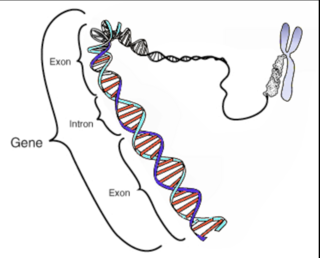Genetics
Genetics and Mental Illness
Understanding the genetics of psychiatry is closer than ever.
Posted September 30, 2019 Reviewed by Lybi Ma

It’s remarkable that between them, Darwin and Mendel got most of evolution and inheritance right way back in the mid 19th century. The two theories of evolution and inheritance were not combined until the 1930s. My evolution professor in college bemoaned Darwin’s later editions of “The Origin of the Species” saying they only got worse from the first edition, mostly because he spent a lot of time fruitlessly chasing false mechanisms of inheritance. Ironically, Darwin had Mendel’s famous bean work in his library, it was found “unopened and unread”* at Darwin’s death.
The basics of inheritance are still very much the same as we’ve understood it for a hundred years. Two alleles for each gene (except for the X chromosome for men), one from mom and one from dad, with varying effects on all sorts of traits, from eye color to left or right-handedness to the smell of your pee after eating asparagus to whether you can form your tongue into a “U” or whether or not you have more calcium channels on neurons than average.

Beyond the basics, it gets messy fast. DNA in our cells is transcribed into RNA that is then translated into the proteins (both structural and enzymatic) that get the business done in our cells. In this messiness comes the perennial question of nature vs. nurture. How does our fixed genome interact with the environment to change gene expression and physiologic function? When we find all the answers to this question, we will have solved a great many medical mysteries.
Back to psychiatry. We’ve known for a long time, from twin studies, that all major psychiatric disorders have a heritable component. Anxiety disorders, PTSD, OCD, and major depressive disorder are about 20-45% inherited, alcohol dependence and anorexia nervosa are 50-60% inherited, whereas bipolar disorder, autism spectrum disorders, schizophrenia, and ADHD are upwards of 75% inherited.
Why haven’t we found all the genes, then, if it’s that simple? The truth is we just didn’t have the computing power. The human genome project did not finish up its work until 2003. After that most scientists focused on SNPs (or small sections of DNA) that are common. All of these disorders are polygenic (there is definitely not any one gene that causes depression or schizophrenia, in other words: multiple genes add or subtract from your risk instead), and while most are related to common SNPs (carried by more than 1% of the population), many weren’t in the first SNPs characterized that were looked at in large GWAS (genome-wide association studies) trying to help us understand the heritability of mental illness. It wasn’t until 2007 that we had the huge sample sizes to look at all the different SNPs in any meaningful way, and not until a few years after that it was possible to do it less expensively.

The truth is risk variants for psychiatric disorder, when discussed in terms of SNPs, could number in the thousands, spread across the entire genome. In addition, there are some genetic disorders (one of the most famous being Huntington’s disease) that come from repeated copies of a certain piece of DNA, or, alternatively, rare deletions. Families with high rates of autism spectrum disorders, ADHD, and schizophrenia have all been found to have rare genetic copy number variations that likely predisposed these families to the risk of these disorders.
In schizophrenia, scientists found that a functional variation of complement (inflammatory immune protein) genes correlated with a strong signal for increased risk of schizophrenia. Turns out these risk alleles have an impact on the pruning of neurons in the inflammatory system of the brain. Here’s a situation where the genetic findings line up with the known pathology of the disorder, a type of inflammation that interferes with brain development at a critical period (typically late adolescence to early adulthood). These findings could help us predict and perhaps even prevent the disease, if we know enough and can intervene early.
Psychiatric genetic research is still in early days, but the future looks promising. Doctors and other clinicians should keep our ears to the ground in following the rapid progress of the research.
*Old printing methods meant some books were printed with sheets connected, so you had to slit them open to read every other page. Mendel’s papers in Darwin’s library were found unslit.
Copyright Emily Deans MD


